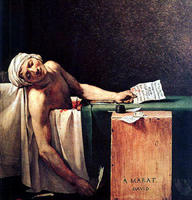
"
-James Berry
The past is a part of identity, whether you are speaking of a person, a family or a nation. True progress can only be made with true knowledge of the past—a knowledge that understands, learns from, and even forgives the errors of the past. The current constitution and policies of the European Union are the fruit of a collective of cultures running from their identity. They are trying to escape from the statues of history that stare them down as they walk the streets in shadows of guilt that generations have passed on to them. Their past stares them in the face all day. So they run through policies that would appear to prevent the past from ever happening again, when, in reality they become the very thing from which they are running. They run from bigotry, yet destroy the person and the family. They run from Christianity, yet destroy their culture. They run from tyranny, yet suffocate democracy.
All this stems from a poor anthropology and a failure to accept an identity. Truly understanding a cultural identity and its history is the only way a society can be freed from the chains of fear of the past. A society must learn to forgive the errors of their fathers and their institutions. Using time as an ally they can discover which institutions produce fruit that aids the culture and which institutions strangle it, and thus the person.
